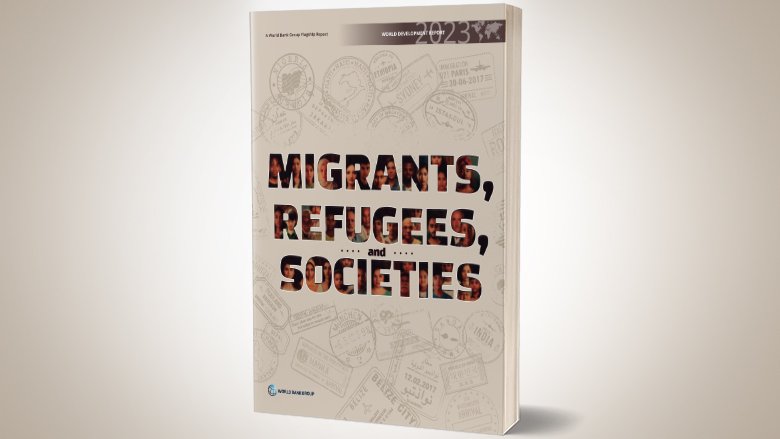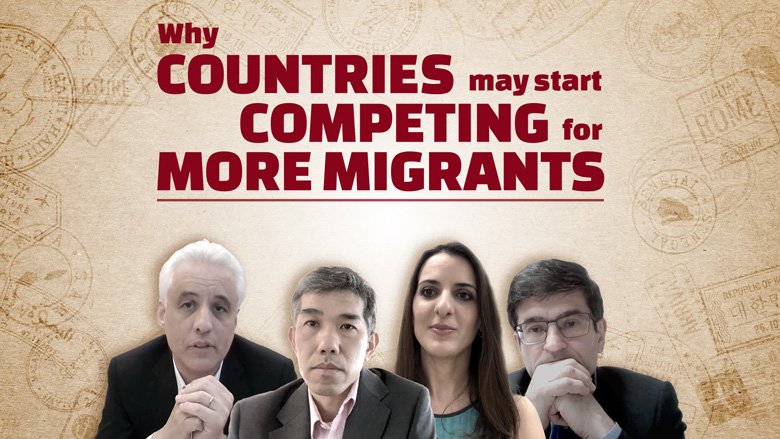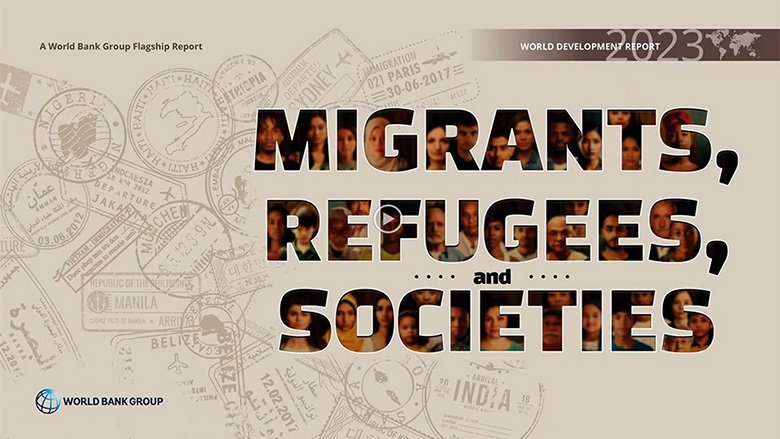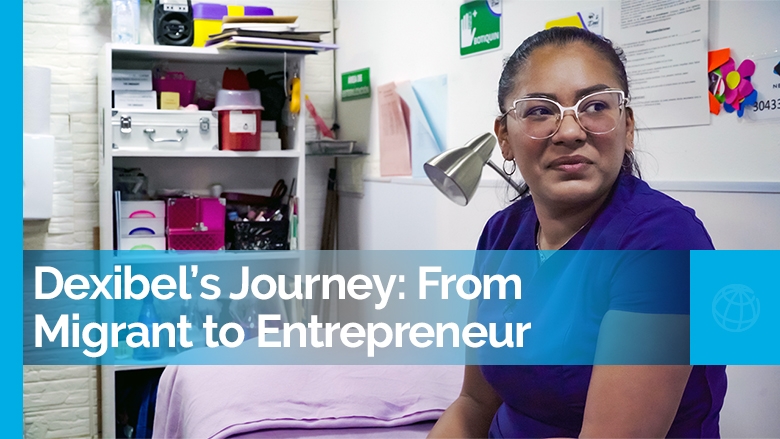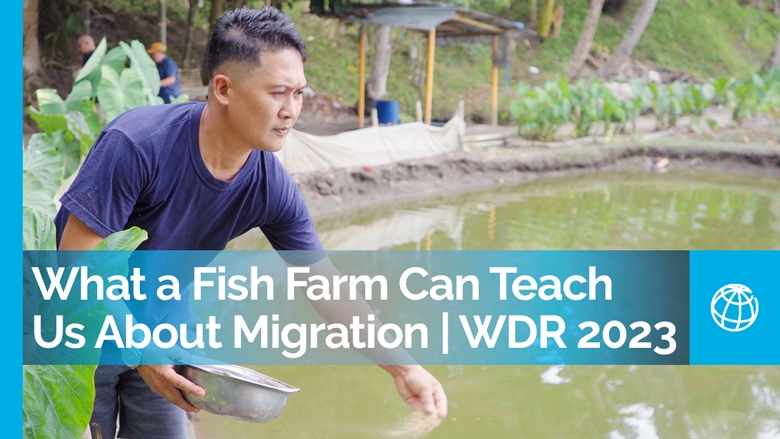MODULE DESCRIPTION
What are the impacts on origin societies when they lose highly skilled people that migrate to other countries? When such emigration happens from lower-income and smaller countries, a global phenomenon often referred to as “brain drain”, it is an impediment to development when the costs to these countries from losing a highly qualified worker outweigh the benefits from the remittances and the knowledge spillovers the worker generates. These adverse effects are especially relevant when workers are in occupations deemed essential for the origin society such as health care.
The brain drain phenomenon raises two main public policy questions. First, how can origin country governments mitigate its effects, especially on sectors such as health care? Second, when the losses in origin countries translate into gains in destination countries, can mechanisms be established to redistribute some of the gains from destination to origin countries?
This module aims to: (i) provide a clear diagnostic of what the brain refers to, (ii) provide a comprehensive overview of the latest economics research on high-skill emigration and evidence on public policy experiments to maximize (minimize) gains (losses) from it, (iii) examine what the empirical evidence says on its drivers and impacts, and (iv) look into what policies can governments use to ensure a triple win situation for skilled migrants, host, and destination countries.
LEARNING OBJECTIVES
Upon completion of this module, participants should be able to:
- Have good knowledge of what brain drain refers to and how it is measured in international statistics.
- Be familiar with the empirical evidence on the consequences of high-skill emigration for origin countries.
- Understand the multiple drivers of high-skill emigration and how brain drain and the economic development of origin countries are two interdependent processes.
- Be well-informed of the most promising policy options to mitigate the adverse effects of brain drain and the mechanisms available to better share benefits between host and origin countries.
AGENDA AND OUTLINE OF LECTURES
This module aims to provide a comprehensive overview of the latest economics research on the brain drain and evidence on public policy experiments to address it. It will combine a presentation of definitions and statistics used to measure the brain drain, a review of the empirical evidence on the causes and consequences of high-skill migration for origin countries, a discussion of policy options available to policymakers to maximize (minimize) the gains (losses) from skilled migration, and selected country case studies. The module consists of 5 two-hour lectures over 2 days.
A synthetic agenda is provided below:
- Brain drain: definition, magnitude, relevance
- Brain drain or brain gain?
- Is brain drain a problem or a symptom of an underlying problem?
- Policies to address (maximize) brain drain (gain)
- Case studies
Lecture 1: Brain drain: Definition, magnitude, relevance
This first lecture will introduce the concept of brain drain. After discussing what the term brain drain refers to, the lecture will provide statistics on the magnitude of the phenomenon. It will conclude by a discussion of why economists and policymakers should be concerned by brain drain related issues.
Mandatory reading:
- Gibson, J., & McKenzie, D. (2011). Eight questions about brain drain. Journal of Economic Perspectives, 25(3), 107-128: focus on pp. 107-116.
Additional readings:
- 2023 WDR “Migrants, Refugees, and Societies”, Chapter 5: focus on pp. 138-141.
- Docquier, F., & Rapoport, H. (2012). Globalization, brain drain, and development. Journal of Economic Literature, 50(3), 681-730: focus on pp. 681–690.
Lecture 2: Brain drain or brain gain?
Lecture 2 will review the empirical evidence on the consequences of the emigration of high-skill workers on origin country socioeconomic development. Participants will discuss how brain drain can change the skill structure of the labor force, cause labor shortages, and affect fiscal policy. Participants will discuss at the same time how high-skill emigration can generate remittances and other benefits from expatriates and returnees.
Mandatory reading:
- Gibson, J., & McKenzie, D. (2011). Eight questions about brain drain. Journal of Economic Perspectives, 25(3), 107-128: focus on pp. 118-126.
Additional readings:
- 2023 WDR “Migrants, Refugees, and Societies”, Chapter 5: focus on pp. 138-141.
- Abarcar, P., Theoharides, C. (2024). Medical Worker Migration and Origin-Country Human Capital: Evidence from U.S. Visa Policy. Review of Economics and Statistics 106:1, 20-35.
- Clemens, Michael. (2007). “Do Visas Kill? Health Effects of African Health Professional Emigration.” Center for Global Development Working Paper 114.
- Docquier, F., Rapoport, H. (2008). Brain Drain. In: The New Palgrave Dictionary of Economics. Palgrave Macmillan, London. https://doi.org/10.1057/978-1-349-95121-5_1986-1
- Rapoport, H. (2019). Diaspora Externalities. IZA Journal of Development and Migration 10:2.
Lecture 3: Is brain drain a problem or a symptom of an underlying problem?
This lecture will review evidence on the drivers of high-skill emigration. Participants will discuss whether brain is an issue per se or symptomatic of broader socioeconomic development problems. In particular, the lecture will touch upon the concept of skill complementarities, market size, and capital-labor complementarity. The lecture will be organized as a structured debate among participants.
Mandatory reading:
- Gibson, J., & McKenzie, D. (2011). Eight questions about brain drain. Journal of Economic Perspectives, 25 (3), 107-128: focus on pp. 117-118.
Additional reading:
- 2023 WDR “Migrants, Refugees, and Societies”, Chapter 5: focus on pp. 138-141.
- Docquier, F., Lohest, O., & Marfouk, A. (2007). Brain drain in developing countries. The World Bank Economic Review, 21 (2), 193-218.
- Docquier, F., Peri, G., & Ruyssen, I. (2014). The cross‐country determinants of potential and actual migration. International Migration Review, 48, S37-S99.
- Gibson, J., & McKenzie, D. (2011). The microeconomic determinants of emigration and return migration of the best and brightest: Evidence from the Pacific. Journal of Development Economics, 95 (1), 18-29.
Lecture 4: Policies to address (maximize) brain drain (brain gain)
Lecture 4 will focus on two sets of policy questions. The participants will first look at the policy options that can mitigate the adverse brain drain’s effects, especially on sectors such as health care. Second, participants will discuss what types of mechanisms can be established to redistribute some of the gains from destination to origin countries when the losses in origin countries translate into gains in destination countries. The lecture will also touch open two often-overlooked policy areas: (i) bonding schemes and (ii) return migration policies.
Mandatory reading:
- Clemens, Michael A. (2015). “Global Skill Partnerships: A Proposal for Technical Training in a Mobile World.” IZA Journal of Labor Policy 4 (1): 1–18.
Additional reading:
- 2023 WDR “Migrants, Refugees, and Societies”, Chapter 5: focus on pp. 138-141.
- Clemens, Michael. (2009). “Skill Flow: A Fundamental Reconsideration of Skilled-Worker Mobility and Development.” Center for Global Development Working Paper 180.
- Del Carpio, Ximena V., Çağlar Özden, Mauro Testaverde, and Mathis C. Wagner. (2016). “Global Migration of Talent and Tax Incentives: Evidence from Malaysia's Returning Expert Program.” Policy Research Working Paper 7875, World Bank, Washington, DC.
Lectures 5 and 6: Case studies
For these two final lectures, participants will zoom in on two case studies. Depending on the audience and demand, the lecture proposes to choose 2 cases studies from the following. Expert guest speakers may be invited to contribute to the lectures based on availability.
- Global Skills Partnership between Belgium and Morocco
- This case study will delve into the innovative labor migration model that brought IT engineers from Morocco’s ICT sector to Belgium. Participants will look at the program’s features, funding sources, participating organizations, and early outcomes.
- Possible guest speaker: Limon Rodriguez (JHU)
- Philippines migration program.
- This case study will focus on the experience of the Philippines with setting up a comprehensive system of institutions, including training programs, to promote and facilitate win-win migration movements in line with the demands in the global market.
- Possible guest speaker: Michael Clemens (GMU)
- Australia Pacific Training Coalition (APTC)
- This case study will zoom in on the APTC: its initial objectives, participating countries, economic sectors selected for training programs, institutional arrangements spanning several countries, program results, and development outcomes.
- Possible guest speaker: Matthew Dornan (WBG)
- Caribbean:
- This case could/will look at diaspora engagement policies and/or regional free mobility regimes for skilled workers. Content to be confirmed based on outcomes of the ASA Caribbean — Exploiting the Brain Gain Potential for Better Human Capital Outcomes (P501652–ongoing).
- Possible guest speaker: TBD


